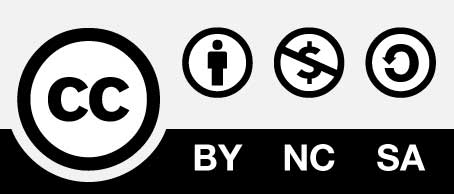Internet, deliberación y democracia
Internet, deliberation and democracy
Keywords:
Red informática, Democracia, Comportamiento social, Poder político (es)Computer networks, Democracy, Social behaviour, Political power (en)
Downloads
Objective: this article of reflection seeks to dissertate around the incidence, scope, challenges and obstacles that the use of the Internet is conducive to the exercise of democracy. Methodology: from an interpretive exercise of recent literature on the Internet, cyberculture, social movements and democracy, it is stated that these have a dialectical character; That is, they are a place of building power and counterpower. Finding: for some actors like the States and Internet Corporations in a space of manipulation, control and surveillance of citizens; but, for politically active individuals, for social organizations and social movements translates into a new space for interaction, sharing, denounce, cooperate and organize around values or an ideal of democracy. Conclusion: the communicative and deliberative characteristics of the use of the Internet have led to changes in the organizational forms and strategies of collective action of the different social actors, Complicating the democratic exercise and giving it a potential for social transformation.
References
AFP. (2013, octubre 21). Google, Facebook y redes sociales convierten al usuario en producto. El espectador, Recuperado de
AFP. (2014, julio 1). La NSA estaba autorizada a espiar 193 países, el FMI y a la UE, entre otros. Yahoo noticias.
Ampudia, M. (2016, marzo 21). Redes sociales dan voz “a una legión de idiotas”, dice Umberto Eco. El economista, Recuperado de
Baquero, J.M. (2014, mayo 12). Carlos Taibo: "Facebook es la estafa óptica de la ebullición revolucionaria", Diario.es, Recuperado de
http://www.eldiario.es/andalucia/Carlos-Taibo-Facebook-ebullicion-revolucionaria_0_236926413.html
Castells, M. (2001). La Galaxia Internet: Reflexiones sobre internet, empresa y sociedad, España: Areté.
Castells, M. (2012). Redes de indignación y esperanza: Los movimientos sociales en la Internet (Primera Edición). Madrid: Alianza Editorial S.A.
Cruz, E. (2014). Los límites de la “ciberpolítica”. Internet y movimientos sociales. Iberofórum. Revista de Ciencias Sociales de la Universidad Iberoamericana, IX (18), 118-143. Recuperado de
http://www.redalyc.org/articulo.oa?id=211033017006
Eisenberg, J. (2006). Internet, democracia y república. Revista Interamericana de Educación de Adultos, 28(1), 175-192. Recuperado de
http://www.redalyc.org/articulo.oa?id=457545365010
El Espectador. (2013, marzo 6). Google afirma que el FBI vigila la web. Recuperado de
http://www.elespectador.com/tecnologia/google-afirma-el-fbi-vigila-web-articulo-408682
Galindo, F. (2012). Democracia, internet y gobernanza: una concreción. Sequência (Florianópolis), (65), 33-56. Recuperado de
http://www.scielo.br/scielo.php?script=sci_arttext&pid=S2177-70552012000200003
Navarrete, S. (2015, mayo 20). Internet puede ayudar a construir justicia social, El Espectador, recuperado de http://www.elespectador.com/tecnologia/internet-puede-ayudar-construir-justicia-social-articulo-561637
Orozco, M. y Ortiz-Ayala, A. (2014). Deliberación: actividad política en internet y redes sociales en Colombia. Panorama, 8(15), 91-100, Recuperado de http://journal.poligran.edu.co/index.php/panorama/article/viewFile/552/490
Rauber, I. (2006). Sujetos Políticos: Rumbos estratégicos y tareas actuales de los movimientos sociales y políticos (Quinta Edición). Santo Domingo: Pasado y Presente XXI.
Rueda, R. (2008). Cibercultura: metáforas, prácticas sociales y colectivos en la red. Revista Nomadas, (28), 8-20. Recuperado de
http://www.ucentral.edu.co/movil/images/stories/iesco/revista_nomadas/28/nomadas_1_cibercultura.pdf
Sampedro, V. Estrategias de futuro en clave de presente (y algún pescozón del pasado). En Ciberactivismo: sobre usos políticos y sociales de la red, (pp. 5-14), Barcelona: Virus Editorial. Recuperado de
http://www.viruseditorial.net/pdf/ciberactivismo.pdf
Spitalleta, R. (2015, noviembre 30). Eco y la Legión de idiotas. El espectador. Recuperado de
http://www.elespectador.com/opinion/eco-y-legion-de-idiotas
Valderrama, C. (2008). Movimientos sociales, TIC y prácticas políticas. Revista Nomadas, (28), 94-101. Recuperado de
How to Cite
APA
ACM
ACS
ABNT
Chicago
Harvard
IEEE
MLA
Turabian
Vancouver
Download Citation
Article abstract page views
Downloads
License
Copyright (c) 2019 Carlos Gustavo Rengifo Arias

This work is licensed under a Creative Commons Attribution-NonCommercial-ShareAlike 4.0 International License.
Authors who publish in this journal accept the following conditions:
-The authors retain the copyright and assign to the journal the right of the first publication, with the work registered with the Creative Commons Attribution - Noncommercial - Share the same license. That allows others to distribute, remix, retouch, and create from your work in a non-commercial way, as long as they give you credit and license their new creations under the same conditions.

-The authors can make other independent and additional contractual agreements for the non-exclusive distribution of the version of the article published in this journal (include it in an institutional repository or publish it in a book) as long as they clearly indicate that the work was published for the first time in this academic journal.


















